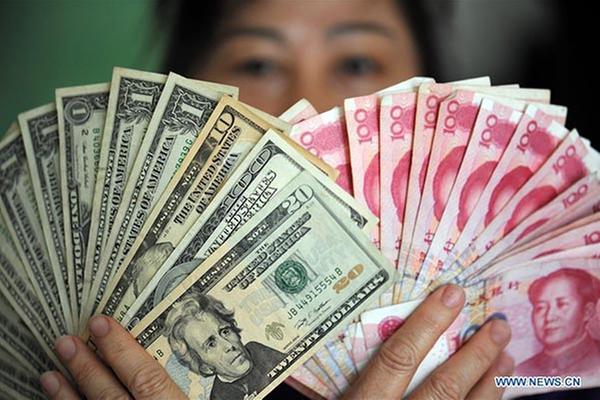Two years after reform, Chinese yuan advances on stable expectations
Xinhua | Updated: 2017-08-12 10:32
 |
| A residents shows China's yuan and US dollar banknotes in Qionghai, South China's Hainan province, Jan 7, 2016. [Photo/Xinhua] |
BEIJING - Two years after China changed its "central parity system" to let the market play a bigger role in exchange rate formation, China's currency stands tall against the US dollar with stabilized market expectations.
On Friday, the central parity rate of the Chinese yuan strengthened by 128 basis points to 6.6642 against the US dollar, the highest level in more than 10 months.
The adjustment came after a rise of 305 basis points Thursday and a rise of 109 basis points Wednesday, according to China Foreign Exchange Trade System.
While a weaker dollar has been contributing to the climb of the yuan, which has strengthened by nearly 3,000 basis points since the beginning of this year, the advance this week came despite a rebound of the US dollar index, indicating a change in market expectations, said China Securities in a research note.
The US dollar index, a measure of the value of the dollar against a basket of foreign currencies, has dropped nearly 10 percent since the beginning of this year, contributing to a relative rise of the Chinese currency.
But a recent pick-up in the index didn't deter the continuous advance of the yuan this week, indicating a shift in the pattern of the yuan's rise.
"The depreciation expectations that had loomed since the exchange rate reform two years ago finally eased," China Securities said.
On Aug. 11, 2015, China improved the formation of the yuan's central parity rate against the US dollar, allowing the reference rate to reflect the closing rate on the inter-bank foreign exchange (forex) market on the previous day.
Under the market-based, managed floating exchange rate system, the yuan can rise or fall by 2 percent against the US dollar from the central parity rate each trading day.
The market-oriented mechanism has helped the Chinese currency join the elite reserve currency basket of the International Monetary Fund (IMF), or the Special Drawing Right (SDR) basket, a milestone for the yuan's internationalization.
Since the reform, a strong US dollar has added to the depreciating pressure of the yuan, sending the currency's value down before it roared back this year.
According to China Securities, the recent rise in the yuan's exchange rate was mainly a result of a large increase of exchange settlement, in which companies or individuals sell forex for the yuan, boosting its value.
"With stabilized expectations, the yuan-dollar exchange rate will probably realize two-way fluctuations within the year," it said.
The yuan is also supported by economic data, with restructuring providing fresh signs of stabilization for the economy, said analysts.
China's economy expanded 6.9 percent during the first half of the year, with consumption and services, together with new innovation-driven economic sectors, playing bigger roles in the economy.
The People's Bank of China said Monday that foreign exchange reserves rose for a sixth month in July to hit 3.1 trillion US dollars, increasing 23.9 billion US dollars from a month earlier.
It is the first time since June 2014 that reserves have expanded for six straight months.
According to Wang Chunying, an official with the State Administration of Foreign Exchange, cross-border capital flow has stabilized in H1, and the supply and demand in the forex market has reached the most balanced level in about three years.
With the country's fundamentals improving, the yuan is likely to advance more against the US dollar, especially when considering that some major currencies like the Euro and Australian dollar have moved up 10 percent this year, said Lukman Otunuga, a research analyst at ForexTime, a global trading platform.
"I think the momentum of the yuan is sending a clear signal that the currency will strengthen further over the coming months, and there is room for the yuan to advance another 2 to 3 percent before the end of 2017," said Otunuga.
According to Xie Yaxuan, an analyst with China Merchants Securities, the financial opening-up of the country will continue to keep the yuan exchange rate basically stable at an appropriate and balanced level.
























